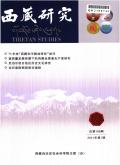西藏研究Issue(3):22-34,13.
"治"、"道"之间:清代土司与圣裔五经博士承袭制度比较研究
A Comparative Analysis of the Tusi and Shengyi Wujingboshi Inheritance Sys-tems during the Qing Dynasty Between Zhitong and Daotong
摘要
Abstract
Scholarly interest has centered on the ideas of Zhitong and Daotong in Chinese history.Politi-cal systems like those in the Central Plains and the frontier can be used to understand the Zhi-tong and Daotong ideas that were advanced by Qing officials.The Qing court's inheritance system in frontier and ethnic areas and Shengyi wujingboshi system for saints'descendants in the Central Plains can be observed in the two systems'inheritance patterns,despite the fact that the two sys-tems differ greatly in terms of region,status,and power.There are clear similarities and contrasts between the inheritance eligibility and procedures in terms of position,age,and physical conditions.The Qing Dynasty's rulers understood and constructed the relationship between Zhitong and Dao-tong as Zhitong and Daotong as one-Zhitong as the mainstay and Daotong as a supplement-based on the reality that ethnic minorities were dominating the Central Plains and a multi-ethnic community was gradually forming.They also inherited Daotong to renew Zhitong,which had a sig-nificant influence on the formation of the two inherited systems'characteristics.关键词
道统/治统/土司/世袭翰林院五经博士/民族共同体引用本文复制引用
巩哲.."治"、"道"之间:清代土司与圣裔五经博士承袭制度比较研究[J].西藏研究,2024,(3):22-34,13.基金项目
本文系中央高校基本科研业务费专项资金项目"儒家'仁政'思想与当代'善治'研究"(项目编号:202110602)阶段性成果. (项目编号:202110602)

